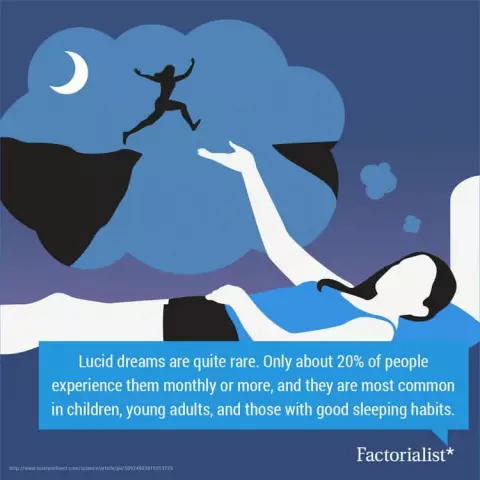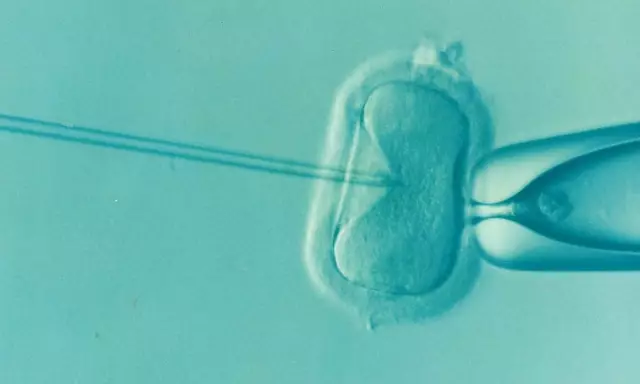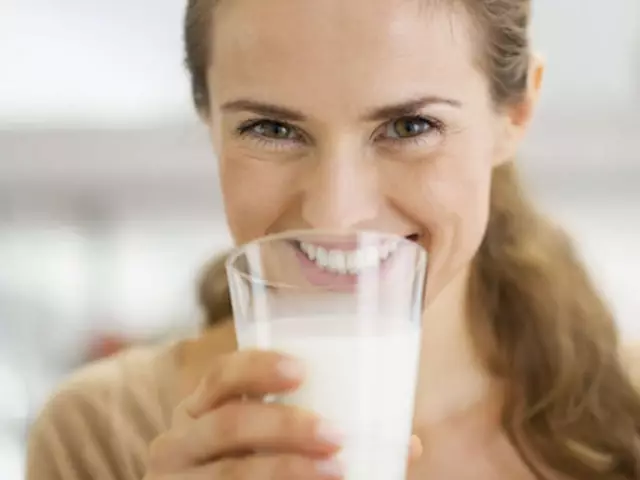- Author Rachel Wainwright wainwright@abchealthonline.com.
- Public 2023-12-15 07:39.
- Last modified 2025-11-02 20:14.
Antioxidant Myths & Facts
Oxidation reactions are among the most important chemical processes in the human body. They come with the participation of fats and carbohydrates that come from food, and oxygen that gets to us from the air. The main goal of such reactions is to obtain energy for life. Unfortunately, these processes generate dangerous by-products called free radicals. To minimize the harm they can cause, a person needs special substances - antioxidants.

Source: depositphotos.com
The role of antioxidants in the body
A free radical is an oxygen molecule whose outer shell is devoid of one of the electrons. Such a molecule has extremely high chemical activity: it seeks to come into contact with any other molecule in order to "take away" the missing electron from it. In this case, an avalanche-like process arises, and there are more and more particles devoid of electrons. As a result, events begin to occur in the body leading to an imbalance of metabolism and disruption of cell membranes, which can lead to a general deterioration in well-being, the development of diseases of internal organs, the appearance of malignant neoplasms and premature aging.
The human body secretes a number of substances, the molecules of which are capable of contacting free radicals, transferring them to a stable state, but without losing electrons themselves. These substances are called antioxidants. For example, some enzymes and hormones have similar properties. Normally, there are enough of them to maintain the concentration of free radicals at a safe level for health, however, over time, the antioxidants produced by the body become insufficient and there is a need for their intake from the outside (with food). The main factors that reduce the level of natural antioxidants are diseases (chronic and infectious), living in areas with poor environmental conditions, physical strain, stress, bad habits, and working with toxic substances.
Misconceptions about antioxidants
Interest in antioxidants is constantly growing, but most of our fellow citizens know little about these substances. In addition, there are many myths, a significant part of which manufacturers of various nutritional supplements and other "miraculous" means are specially disseminated in order to increase sales of their products. Here are some of the most famous misconceptions about antioxidants:
- "It is possible to create the concentration of antioxidants necessary for the body only by taking dietary supplements." It is not true. With a well-designed diet, a person has enough antioxidants obtained from food. And doctors prescribe the appropriate drugs only if their natural intake into the body is not enough (for example, in case of cancer, severe poisoning or long-term treatment with the use of a large number of potent drugs);
- "Products that each contain just one antioxidant are effective." Substances that can bind free radicals are very diverse. In some cases, they act only in combination, complementing each other. When solving the problem of excess free radicals in the body, monopreparations are practically useless;
- "Antioxidants of synthetic origin are no worse than natural ones." Unfortunately, artificially produced complex organic substances are not complete copies of their natural counterparts. Their effect on the body is much weaker than the effect of antioxidants contained in plant materials;
- "Cosmetics with antioxidants rejuvenate the skin." This is just an advertisement. Not a single cosmetic product is capable of returning youth. With the help of creams, you can only moisturize the skin, protect it from the aggressive influence of the external environment (sunlight, frost, wind, etc.) and heal minor damage;
- "There are few antioxidants in food." A diet consisting entirely of canned food and junk food really isn't full of free radical scavengers. But there are a lot of antioxidants in sea buckthorn, blueberries, grapes, nuts, legumes, cereals and vegetables. Green tea is considered to be the drink containing the maximum amount of these substances.

Source: depositphotos.com
Contrary to popular belief, free radicals are not at all some kind of absolute evil. On the contrary, experts argue that these molecules can provide certain benefits (for example, help fight pathogenic microorganisms). It is important that the body does not have an excess of them.
In the absence of serious diseases, all the antioxidants necessary for the body come from food. To do this, you need to adhere to a normal diet and make up a diet so that it contains enough vegetables, fruits, cereals. In order to maintain performance for a long time, it is important to lead a healthy lifestyle, play sports, and try to avoid stress. The use of dietary supplements containing antioxidants is not only optional, but can even be dangerous, so a doctor should prescribe them.
YouTube video related to the article:

Maria Kulkes Medical journalist About the author
Education: First Moscow State Medical University named after I. M. Sechenov, specialty "General Medicine".
Found a mistake in the text? Select it and press Ctrl + Enter.






